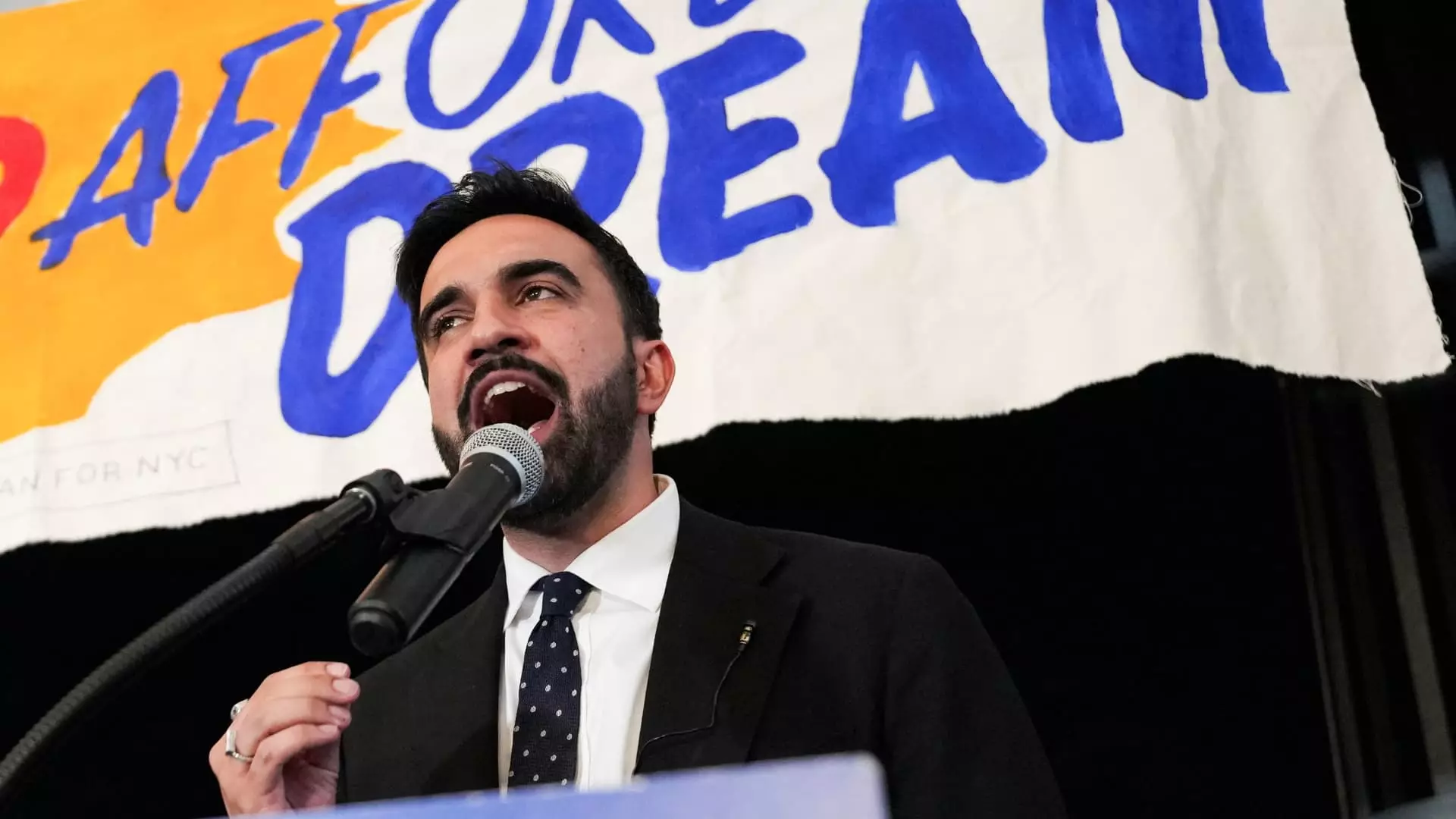Donald Trump’s recent branding of Zohran Mamdani, a democratic socialist and formidable contender in New York City’s mayoral race, as “a communist” represents a troubling distortion that exemplifies a broader trend of oversimplified political rhetoric. This tactic doesn’t merely misrepresent Mamdani’s actual positions; it actively stokes fear and confusion among voters and investors alike. Labeling someone with a historically and ideologically loaded term like “communist” in a city known for its complex socio-economic tapestry is not just intellectually lazy—it’s dangerously reductive.
Mamdani’s progressive agenda, which includes raising corporate taxes, instituting rent freezes, and expanding public transportation, aligns with a democratic socialist vision that aims to reimagine urban governance by addressing inequality and strengthening public services. Yet, Trump’s inflammatory characterization eclipses meaningful discourse about policy and governance, reducing the debate to a caricature more suited for culture wars than the practical realities facing New York City.
Fear-Mongering and the Myth of Economic Exodus
The alarm expressed by financial moguls and conservative commentators—that Mamdani’s potential mayoralty would drive wealthy investors out of the city—reveals a myopic prioritization of capital over community wellbeing. The prediction that wealthy residents will flee neglects the fundamental fact that cities like New York have routinely evolved economically amid shifting political landscapes. Wealth migration isn’t exclusively triggered by progressive tax policies or rent controls but often results from multifaceted factors like quality of life, infrastructure, and social stability.
Invoking this fear perpetuates a narrative that equates business interests with the city’s lifeblood, ignoring the diverse population that sustains New York’s vibrancy. This worldview risks destabilizing urban ecosystems by prioritizing profit above all else and dismissing innovative approaches to affordable housing and public transport, which are critical to reversing urban decline and social fragmentation.
The Flawed Political Landscape and Power Struggles
The mayoral race is further complicated by the incumbent, Eric Adams, running independently after previously serving as a Democrat. His political journey—and the legal controversies surrounding his federal indictment and subsequent dismissal of charges—highlights the murky intersections of law, politics, and governance in New York. The Department of Justice’s abrupt move to drop Adams’ case, amid resignations from several federal prosecutors over alleged political interference, underscores a disturbing erosion of institutional integrity.
In this atmosphere, the public’s trust in political figures and institutions is dangerously fragile. The entropy around Adams’ legal troubles and electoral positioning contrasts harshly with Mamdani’s clear policy proposals, yet media and political actors often frame the contest as a choice between chaos and uncertainty, rather than a substantive debate over the city’s future.
Democratic Socialism’s Real Appeal to Urban Voters
Mamdani’s unexpected rise to prominence embodies a broader shift in urban politics, where democratic socialism resonates with a segment of the electorate eager for tangible solutions to economic inequality and social injustice. The success of his campaign, particularly against a well-established figure like Andrew Cuomo, signals an appetite for bold reform over the incrementalism that has dominated New York’s political scene for decades.
This momentum should not be dismissed or derided through exaggerated rhetoric. Instead, it demands a thoughtful engagement with the realities faced by millions of New Yorkers grappling with housing insecurity, unaffordable transportation, and a widening wealth gap. By reducing democratic socialism to a scare tactic, opponents overlook the genuine efforts of activists and representatives seeking to recalibrate power structures in favor of equity.
Reclaiming the Political Narrative
Ultimately, the battle for New York City’s mayoralty is more than a contest between individuals; it is a referendum on competing visions for what a great city should look like. Trump’s reactionary labeling and the business community’s panicked responses reveal the entrenched resistance to change within elite circles. However, true leadership involves grappling with complexity, not hiding behind reductive slogans or capital flight fears.
The challenge for voters and commentators alike is to demand honest, nuanced conversations—ones that recognize the potential in progressive platforms without succumbing to ideological caricatures. New York deserves debates rooted in fact and ambition, not fear and distortion. As this historic election unfolds, the city’s future hinges on rejecting simplistic narratives and embracing a politics that reflects its diversity and resilience.


Leave a Reply